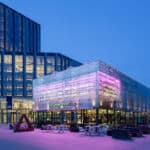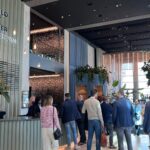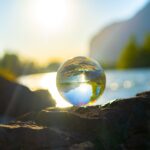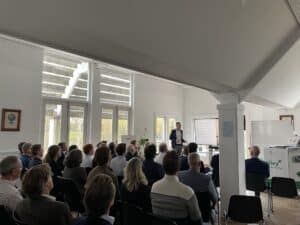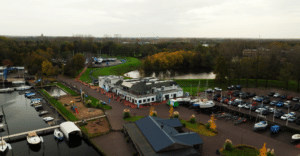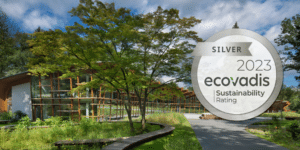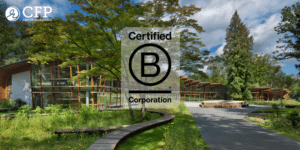
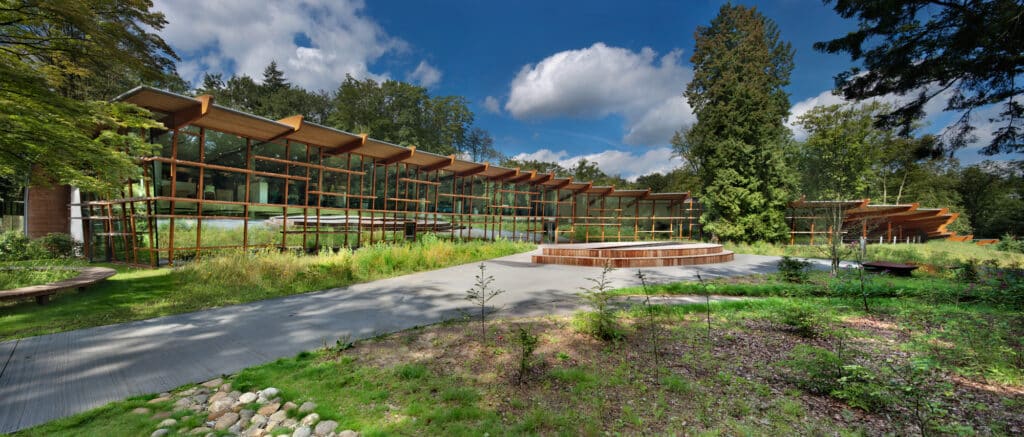
Apenheul: an oasis of conservation and sustainability
Apenheul, a beautiful park located in Apeldoorn, is not only home to several species of monkeys and great apes, but also a model of sustainability, making it the ideal location for a CFP Green Buildings office. In an interview with park manager Erwin Cheizoo and Apenheul Foundation project manager Miriam Glazenburg, we looked at the park’s commitment to sustainability and their ongoing efforts to contribute to a better world.
Sustainability at the heart of the mission
“Sustainability is in our DNA,” says Erwin. “Our mission and vision are all about conservation and species preservation. Because you can’t do conservation without thinking about sustainability.” Apenheul takes this seriously, where sustainability is not just a buzzword, but an integral part of their operations. “It is woven into our organisation,” Miriam adds.
A number of major projects are planned in the near future, in which CFP has been involved as a consultant. Miriam explains: “Last year, we switched to LED lighting throughout the park. And heat pumps are planned for the coming year. Solar panels are also still on the agenda, starting with The St@art, the building where CFP also has one of their offices.
“Sustainability is not only necessary for conservation. The rise in all costs also makes it necessary to significantly reduce energy costs. That is why we have brought some major sustainability projects forward.”
– Miriam Glazenburg, project manager at Apenheul
Contribution to animal welfare and species conservation
At Apenheul, sustainability is not limited to the park’s own premises. Worldwide, the Foundation supports various nature conservation projects through the Apenheul Nature Conservation Fund, to which substantial sums of money are contributed annually. Erwin: “The activities include things like research on various populations, but also local education. That way, locals learn how they themselves can contribute to the conservation of their country’s beautiful nature and wildlife, such as through reforestation.”
Apenheul also involves its visitors in sustainability education. Miriam: “In the park, we provide a lot of information about the animals and their habitats and children see how beautifully the animals move around in our park. They learn in a playful way how important it is to respect and preserve nature.”

Integrating sustainability into daily practice
Apenheul strives to make every aspect of their operations as environmentally friendly as possible. “A Green Team is involved in raising awareness among our staff and we only serve vegetarian food at our own events,” Miriam says. Erwin cites several more real-life examples: “Before, if you visited the Apenheul, you were given a paper map. Now there are a few large signs in the park with QR codes and the map is available digitally. But it also includes things like offering more sustainable catering products and sustainable souvenirs. We have included more practical items and clothing in our sustainable product range, such as a lunch box, drinking cups and T-shirts made of responsible cotton. The plush cuddly toy remains a popular item in our souvenir shop, but manufacturers are taking strides here too by making soft toys from recycled materials.”
De St@art: a textbook example of sustainable construction
One of the most striking examples of sustainability at Apenheul is De St@art, a building built in 2011 in which CFP has had an office since 2012. In 2011, this building was ahead of its time, but Erwin and Miriam hope that many of its features have since been regularly copied or improved on in other buildings.
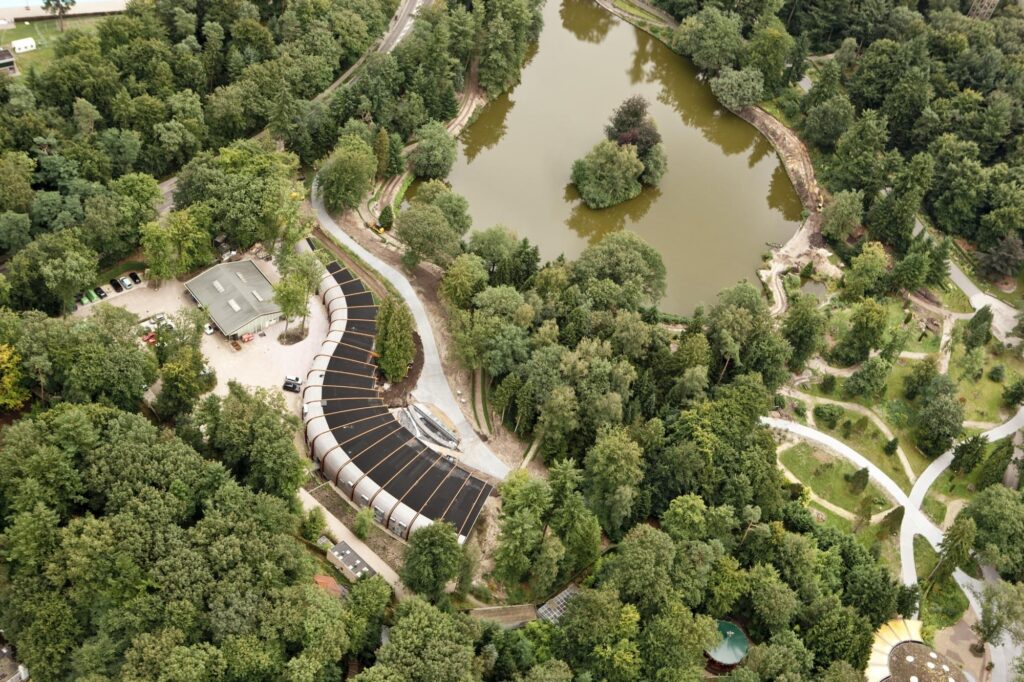
In its design, De St@art resembles a giant wooden skeleton no less than 150 metres long. The building is completely carbon-neutral and largely made of native larch wood. Thanks to innovative features such as concrete core activation, thermal energy storage, and smart architecture with glass facades on the sun-facing side and few windows on the north side, the temperature remains constant all year round.
The building is also equipped with LED lighting linked to an intelligent lighting system; lighting is automatically controlled for each workstation. “And another fun fact: The flooring is made from recycled jeans and car tyres,” Erwin adds.
Working together for a sustainable and conscious future
With their shared passion for sustainability, Apenheul and CFP are a great match for a more sustainable and environmentally aware future. They not only inspire, but also take concrete steps to minimise environmental impact and protect nature.

